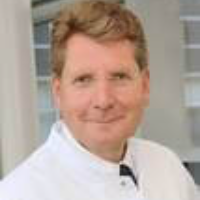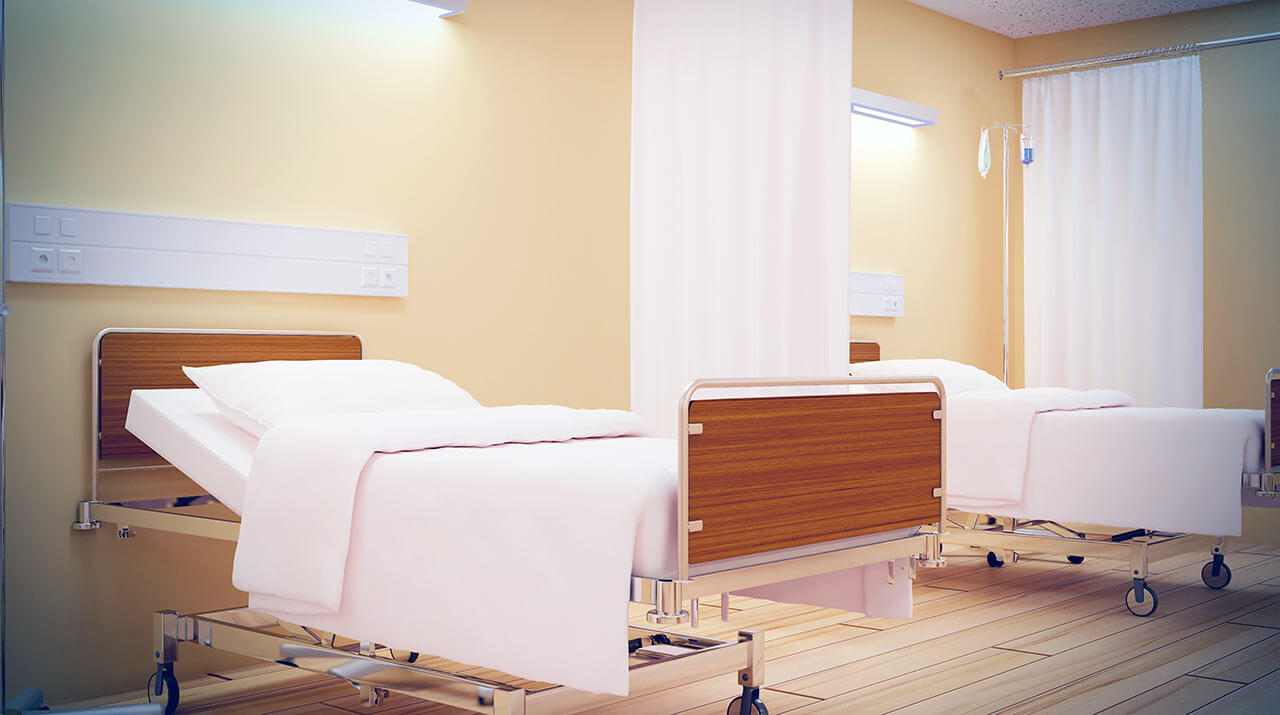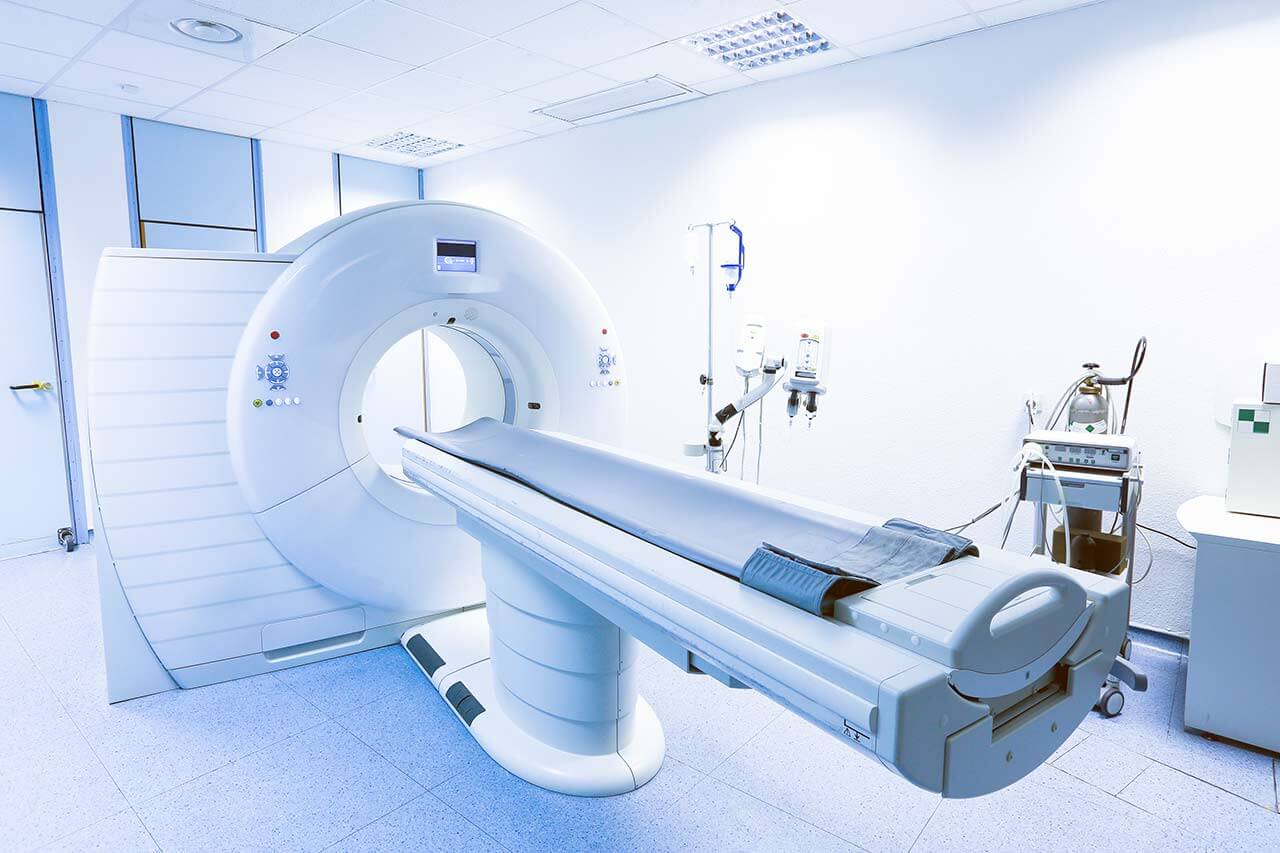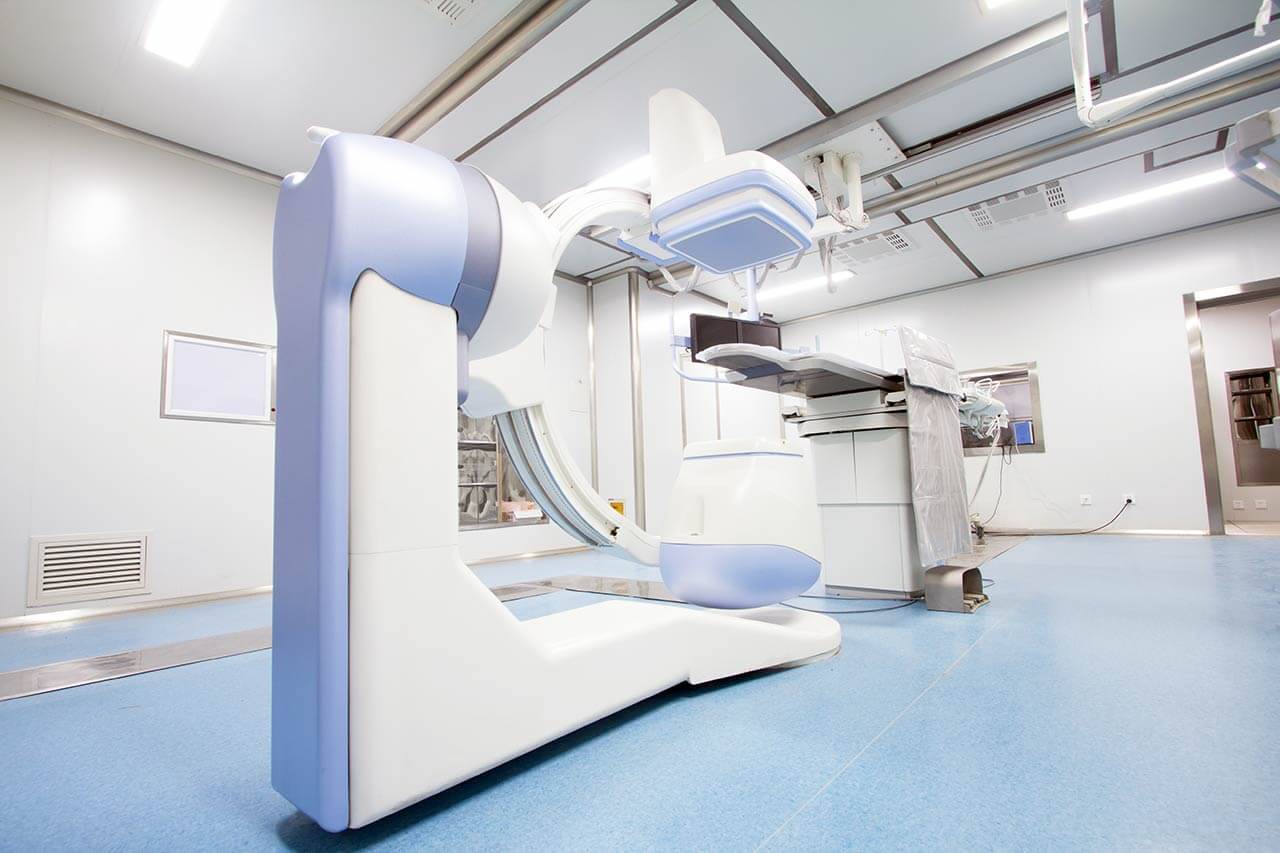
The program includes:
- Initial presentation in the clinic
- clinical history taking
- physical examination
- review of medical records
- laboratory tests:
- complete blood count
- general urine analysis
- biochemical analysis of blood
- indicators of inflammation (CRP, ESR)
- indicators blood coagulation
- x-ray examination
- preoperative care
- titanium osteosynthesis plates placement
- symptomatic treatment
- control examinations
- physiotherapeutic procedures
- orthopedic appliances
- the cost of essential medicines and materials
- nursing services
- full hospital accommodation
- explanation of future recommendations
Required documents
- Medical records
- X-ray examination, MRI/CT scan (if available)
Service
You may also book:
 BookingHealth Price from:
BookingHealth Price from:
About the department
The Department of Traumatology at the University Hospital Greifswald offers all the options for conservative and surgical treatment of musculoskeletal injuries. Long clinical experience and a modern technical base allow the department's doctors to successfully treat extremely severe injuries and polytrauma. Doctors have special competence in providing medical care for patients with injuries of the lower limbs, pelvis, and spine. The treatment of hand injuries, including replantation surgery, is carried out in cooperation with highly specialized experts in hand surgery. In addition, the department's doctors have successful experience treating bone fracture malunion. The department's traumatologists have advanced equipment for minimally invasive and arthroscopic interventions, as well as navigation systems that ensure the high safety of surgical treatment. It should be noted that not only complex treatment is available in the department but also effective outpatient rehabilitation aimed at restoring the patient's mobility. The department provides round-the-clock admission of patients, and they can get emergency medical care. The department's team of doctors makes every effort to provide each patient with effective and sparing treatment, if possible. The department is headed by Prof. Dr. med. Dr.h.c. Axel Ekkernkamp.
The department regularly admits patients with polytrauma, whose treatment is a rather complex task. Polytrauma is the presence of two or more traumatic injuries. As a rule, such injuries occur as a result of traffic accidents, falls from great heights, accidents in the workplace, natural disasters, etc. The complexity of such clinical cases lies in the fact that each injury requires specific treatment. With improper treatment, polytrauma may lead to severe consequences, up to disability. Upon admission to the department, the patient undergoes a complex of diagnostic examinations to assess the severity of injuries and general health conditions. During treatment, doctors strive to stabilize the patient's condition and provide him with the most effective medical care. If internal bleeding and complex injuries to the internal organs are detected, an emergency surgical intervention will be performed. Once the patient's condition is stabilized, follow-up surgical procedures may be performed. The final stage in the treatment of polytrauma is a course of rehabilitation with individually selected therapeutic exercises and physiotherapy procedures
The specialists at the medical facility are deservedly proud of their excellent results in treating upper and lower limb fractures and pelvic fractures. The department's traumatologists also provide medical care for patients with traumatic brain injuries. When treating patients, doctors use conservative and surgical treatment methods and often combine them. As a rule, treatment begins with the use of conservative methods, but complex fractures often require surgical interventions, including the placement of implants, plates, wires, screws, rods, etc. Surgical procedures are performed using low-traumatic techniques, which contribute to the patient's rapid recovery and the exclusion of severe pain.
An integral part of the department's clinical practice is surgery for vertebral fractures. Such fractures cause severe pain, sensory disturbances, and limited mobility. To assess the severity of the fracture and its type, the department's specialists perform CT and/or MRI scans, based on the results of which they prescribe further therapeutic measures. In addition, a doctor carries out an accurate clinical examination, during which he checks whether a patient can walk normally. With all the diagnostic data, the physician prescribes the optimal course of conservative therapy or a surgical intervention (osteosynthesis, decompression, etc.). Following spinal surgery, the patient needs a comprehensive rehabilitation, including an individually selected set of physiotherapy procedures, massage, therapeutic exercises, etc.
The department's range of medical services includes:
- Conservative and surgical treatment of polytrauma
- Conservative and surgical treatment of upper and lower limb injuries and pelvic injuries
- Conservative and surgical treatment of spinal injuries
- Minimally invasive interventions (arthroscopy) for joint injuries
- Conservative and surgical treatment of hand injuries
- Conservative and surgical treatment of foot injuries
- Replantation surgery
- Surgical treatment using navigation systems: spinal surgery, cruciate ligament plastic repair and replacement
- Primary treatment for severe burns
- Septic surgery of the musculoskeletal system (treatment of infectious lesions of bones and soft tissues)
- Other diagnostic and therapeutic options
Curriculum vitae
Higher Education and Professional Career
- Human Medicine and Dentistry studies in Muenster (Westfalia), study of Human Medicine in Bern (Switzerland).
- 1983 State exam, admission to medical practice, doctorate.
- 1983 Visiting Doctor, Department of Orthopedics at the University Hospital Vienna.
- 1984 Work in the Bundeswehr Hospital Osnabrueck.
- 1984 Captain of the Medical Service, Munich.
- 1984 - 1997 Research Fellow and Senior Physician in the Department of Surgery, Bergmannsheil Hospital at the Ruhr University Bochum.
- 1988 - 1989 Assistant Physician, St. Joseph Hospital at the Ruhr University Bochum (University Hospital).
- 1989 Board certification in Surgery.
- 1992 Visiting Doctor, Department of Orthopedic Surgery at the University Hospital Bern.
- 1992 Habilitation, Faculty of Medicine, Ruhr University in Bochum, Venia Legendi in Surgery.
- 1993 Participation in the first foreign mission of the German Federal Armed Forces UNTAC in Cambodia.
- 1994 Acting Medical Director of the Bergmannstrost Halle/Saale Hospital.
- 1994 Visiting Doctor, Harborview Medical Center, Seattle, USA.
- 1994 Elected as the Head of the Department of Traumatology, Trauma Surgery Clinic Berlin (Unfallkrankenhaus Berlin), (groundbreaking ceremony 1994, commissioning 1997).
- 1996 Appointment as Medical Director of the Trauma Surgery Clinic Berlin (Unfallkrankenhaus Berlin).
- 1997 Extraordinary Professorship, Ruhr University Bochum.
- 1997 Head of the Department of Traumatology at the Trauma Surgery Clinic Berlin (Unfallkrankenhaus Berlin).
- 1999 Full Professor at the Chair of Traumatology, University of Greifswald.
- 1999 Head of the Department of Traumatology at the University Hospital Greifswald.
- 1999 Managing Director of the Trauma Surgery Clinic Berlin (Unfallkrankenhaus Berlin).
- 2009 Professor at the Thai Binh Medical University, Vietnam.
- 2017 Chairman of the Board and Chairman of the Medical Advisory Board of BG-Kliniken GmbH.
Additional Qualifications
- Hand surgery.
- Sports medicine.
- Physiotherapy and balneology.
- Emergency medical care.
- Intensive care.
- Special traumatology.
- Qualifications for consulting in genetics.
Awards and Honors
- 1979 Scholarship from the Konrad Adenauer Foundation.
- 1988 EU Erasmus Scholarship Program in various UK clinics (Oswestry, Sheffield, Nottingham).
- 1993 Herbert Lauterbach Prize.
- 1998 Ernst von Bergmann Memorial Medal from the German Medical Association.
- 2001 Federal Cross of Merit.
- 2007 Dr.h.c. from the University of Pyongyang (Korea).
- 2007 Federal Cross of Merit (first class).
- 2011 Order of Merit of Berlin.
- 2015 Badge of Honor of Kommandeur Sanitätskommando I.
- 2017 DGUV Silver Medal for many years of work in compulsory insurance against accidents.
Memberships in Professional Societies (Selected)
- 1998 Corresponding Member of the Association of Orthopedicians and Trauma Surgeons (OTA).
- 1998 Honorary Membership of the American Fracture Association (AFA).
- 1998 Founding Member of the Rotary Club Berlin-Alexanderplatz.
- Clinica Physiologica Anaesthesiologica (CPA), (membership until 31.12.2016).
- 2001 Founding Member, Berlin Capital Club.
- 2002 German-Turkish Health Forum (Founding Member, Berlin, 19.12.2002).
- 2005 Member of the Board of Trustees, German Association of Physical Therapy (ZVK).
- 2007 Founder of the Journal of Trauma Management & Outcomes.
- 2008 President of the German Society of Traumatology.
- 2008 Deputy President (Founder) of the German Society of Orthopedics and Traumatology.
- 2008 Honorary Membership of the Latin American Society of Orthopedics and Traumatology (SLAOT).
- 2008 Presidium, Health Care Club (Club der Gesundheitswirtschaft (cdgw)).
- 2008 Head of the Initiative Quality in Medicine (IQM).
- 2009 Corresponding Member of the German Society of Military Medicine and Military Pharmacology.
- 2011 Member of the Editorial Board of DGUV Kompact.
- 2012 Founding Member, World Orthopedic Alliance (Beijing, 15.11.2012).
- 2013 Founding Member of the Ayinger Discussion Group.
- 2013 National Center for Plasma Medicine (Constituent Council, Berlin, 03.06.2013).
- 2013 Scientific Advisory Board, Deutsche Verkehrswacht (DVW).
- 2013 ProBrasil Board of Trustees, Martim de Lima, Sao Paulo.
- 2013 Founding Member, Advisory Board, InterComponentWare AG ICW.
- 2015 Founding Member, German-Korean Health Forum.
- 2016 Corresponding Member, Austrian Society of Traumatology (ÖGU).
- 2016 Center for Innovative Competence.
- 2016 Member of the Advisory Board, German Society for Comprehensive Medical Assistance (DGIV).
- 2016 Honorary Member, National Center for Plasma Medicine.
- 2018 Senate Member, German Society for Extracorporeal Shock Wave Therapy (DIGEST).
Photo of the doctor: (c) Universitätsmedizin Greifswald
About hospital
According to the reputable Focus magazine, the University Hospital Greifswald is included in the ranking of the best medical complexes throughout Germany!
The hospital is one of the oldest healthcare facilities in Germany, with long traditions and an excellent reputation. The history of the hospital begins in 1456, when the Faculty of Medicine at the University of Greifswald was founded. During this time, the hospital has managed to earn recognition in the national medical arena and gain prestige abroad. The hospital has 19 institutes and 21 specialized departments. The key to successful clinical practice is the combination of state-of-the-art equipment and highly qualified medical personnel who are actively engaged in the development of effective medical techniques and implement them in everyday practice.
The medical team of the university hospital has more than 4,400 employees, including world-famous professors who regularly undergo advanced training in the leading European and American hospitals, where they share their experience with foreign specialists. The doctors at the medical facility annually treat about 180,000 patients. At the same time, the specialists often provide medical care to patients with complex clinical cases, even in those cases that doctors at other medical centers consider hopeless. The hospital has more than 1,000 beds for inpatients, and many highly-specialized outpatient clinics are available in the medical facility for counseling and outpatient medical care.
The hospital presents all the fields of modern medicine. According to Focus magazine, the medical complex is recognized as one of the best in Germany for treating bowel cancer, bladder cancer, malignant brain tumors, skin cancer, multiple sclerosis, Parkinson's disease, dementia, cardiovascular pathologies, knee and hip pathologies, as well as ophthalmic and proctologic diseases. Diagnostic and therapeutic procedures are carried out in strict accordance with national and international standards, which ensures top-class medical care.
The medical team at the hospital makes sure that each patient feels as comfortable as possible during the therapeutic process. Doctors and nursing staff show humanity and understanding, striving to support each patient in every possible way on the path to recovery.
Photo: (с) depositphotos
Accommodation in hospital
Patients rooms
The patients of the University Hospital Greifswald live in comfortable single and double rooms. The patient rooms are made in bright colors and are quite cozy. The furnishings of a standard patient room include an automatically adjustable bed, a bedside table, a TV, and a telephone. The patient room has a table and chairs for receiving visitors. There is also free Wi-Fi in the patient rooms.
If desired, patients can live in enhanced-comfort rooms. In such rooms, patients are additionally offered toiletries, a bathrobe, and a change of towels.
Meals and Menus
The patients of the hospital are offered three healthy and tasty meals a day: a buffet breakfast, a hearty lunch, and dinner. The hospital also houses a cafeteria where one can have a tasty snack, a cup of aromatic coffee, tea, or soft drinks.
Patients staying in enhanced-comfort rooms are offered a special menu with a wide range of main courses, appetizers, desserts, and drinks.
Further details
Standard rooms include:
Religion
The services of representatives of religions are available upon request.
Accompanying person
Your accompanying person may stay with you in your patient room or at the hotel of your choice during the inpatient program.
Hotel
You may stay at the hotel of your choice during the outpatient program. Our managers will support you for selecting the best option.




